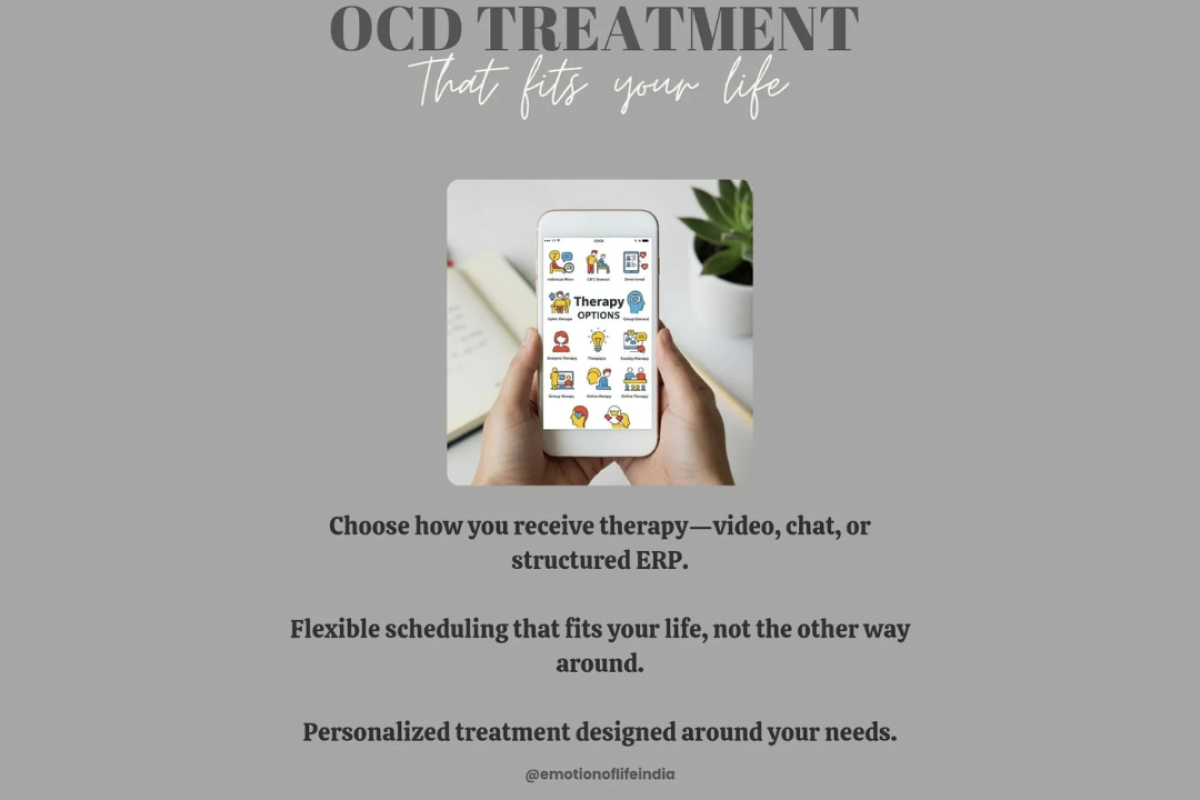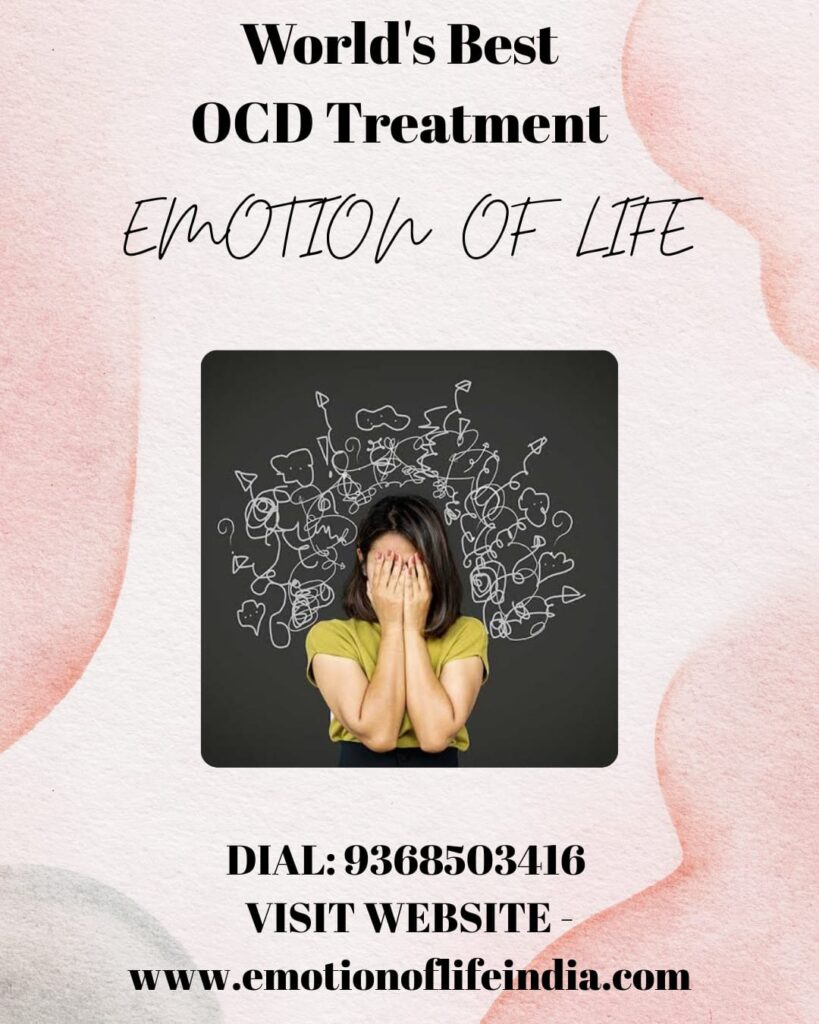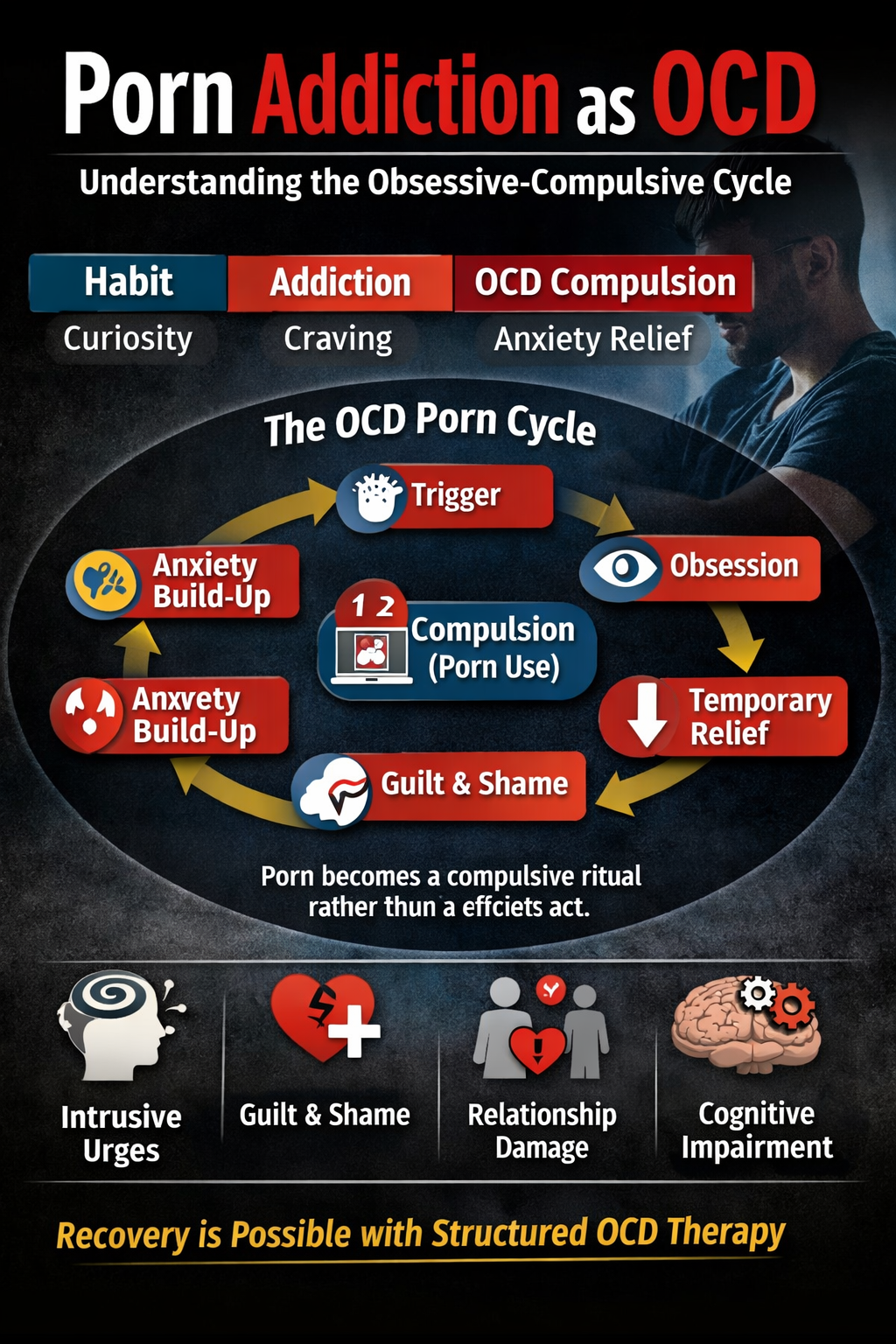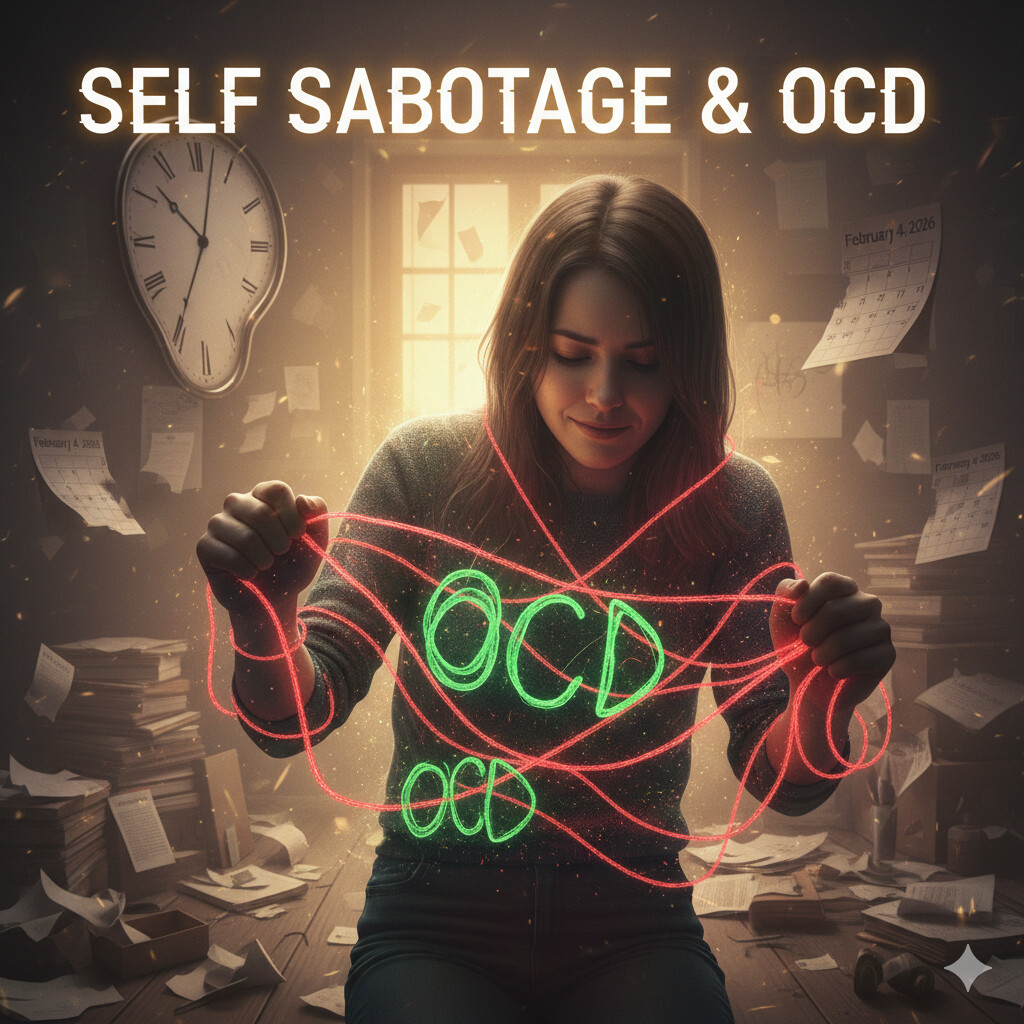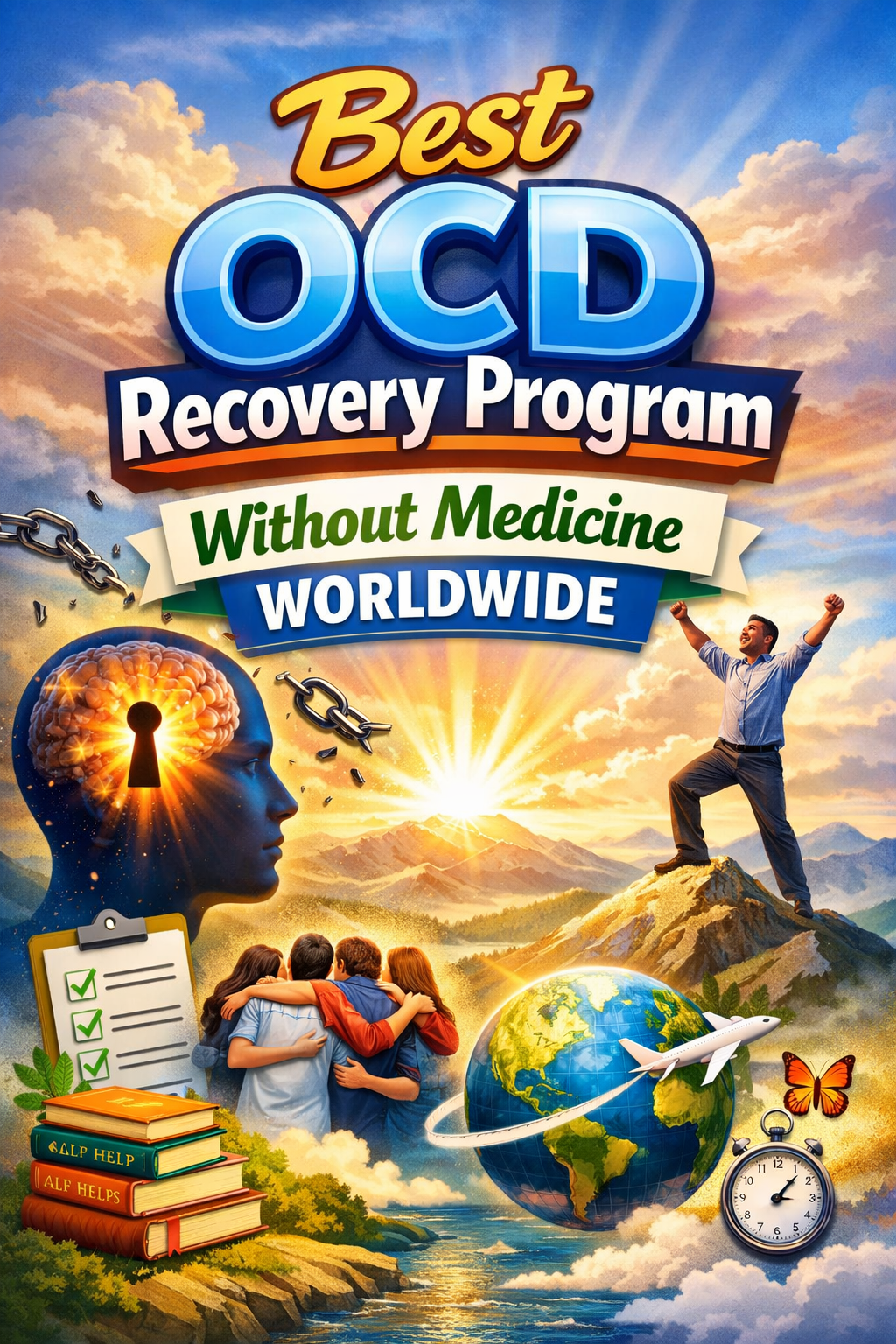Obsessive-Compulsive Disorder (OCD) is a complex mental health condition characterized by persistent intrusive thoughts (obsessions) and repetitive behaviours (compulsions). Effective solutions require evidence-based, structured approaches that empower individuals to manage symptoms and rebuild daily functioning. At Emotion of Life, we offer holistic, non-medication strategies led by OCD Therapist Shyam Gupta and Pratibha Gupta.
Core Principles
Our approach emphasizes psychological interventions, behavioural techniques, mindfulness practices, lifestyle modifications, and strong support systems. The goal is to reduce symptom severity, increase tolerance for uncertainty, and build long-term resilience.
Understanding OCD: The Cognitive-Behavioural Model
The cognitive-behavioural model explains that intrusive thoughts are normal, but people with OCD misinterpret them as dangerous or meaningful. That misinterpretation creates anxiety, which leads to compulsive attempts to neutralize the perceived threat. Breaking this cycle is central to an effective solution for OCD.
Cognitive-Behavioural Therapy (CBT)
CBT is a well-researched, first-line treatment for OCD and a central component of our program.
- Cognitive restructuring: Identify and reframe distorted thoughts. Example: changing “If I touch this doorknob I will get severely ill” into a realistic appraisal of risk.
- Behavioural experiments: Test feared outcomes in controlled settings to gather real evidence against catastrophic beliefs.
Exposure and Response Prevention (ERP)
ERP is the behavioural core of OCD treatment and highly effective as a solution for OCD.
- Gradual exposure: Stepwise confrontation with feared triggers, starting from least to most distressing.
- Response prevention: Deliberate refraining from compulsive responses so anxiety naturally reduces over time.
Mindfulness and Acceptance-Based Interventions
These techniques change the relationship to thoughts rather than trying to eliminate them.
- Mindfulness meditation: Breath awareness, body scan, and grounding to reduce reactivity to intrusive thoughts.
- Acceptance and Commitment Therapy (ACT): Accept mental events and take values-based action despite discomfort.
- Thought labelling: Label thoughts as “mental events” to reduce their immediate emotional impact.
Behavioural Strategies & Habit Reversal
For overt compulsions and body-focused repetitive behaviours, Habit Reversal Training (HRT) is useful:
- Awareness training — identify triggers and urge patterns.
- Competing response — use an alternative action (e.g., clenching fists, deep breaths).
- Self-monitoring — keep a log of urges, triggers, and successes.
Lifestyle Modifications
Daily habits influence symptom severity. We recommend:
- Stress management: progressive muscle relaxation, yoga, guided imagery.
- Regular exercise: aerobic activity supports mood and reduces anxiety.
- Sleep hygiene: consistent schedule, reduced evening screens, bedtime routines.
- Diet & nutrition: balanced diet, adequate omega-3s and magnesium; reduce excess caffeine and sugar.
Support Systems & Psychoeducation
Recovery is easier in a well-informed environment:
- Family involvement: educate caregivers to avoid accommodating rituals and to support ERP tasks.
- Professional guidance: work with therapists experienced in OCD interventions.
- Peer and group support: structured groups provide encouragement and shared learning.
Conclusion
A robust solution for OCD combines CBT, ERP, mindfulness/ACT, behavioural strategies, lifestyle changes, and strong support. Emotion of Life emphasizes non-medication pathways to lasting recovery by addressing both symptoms and underlying personality/emotional dynamics.
Key point: With consistent ERP and cognitive work, many people substantially reduce or eliminate OCD symptoms and regain a full, meaningful life.
Success Story
Many clients have overcome chronic OCD with structured CBT + ERP + ACT and relapse prevention. These stories illustrate that meaningful, lasting recovery is achievable.


